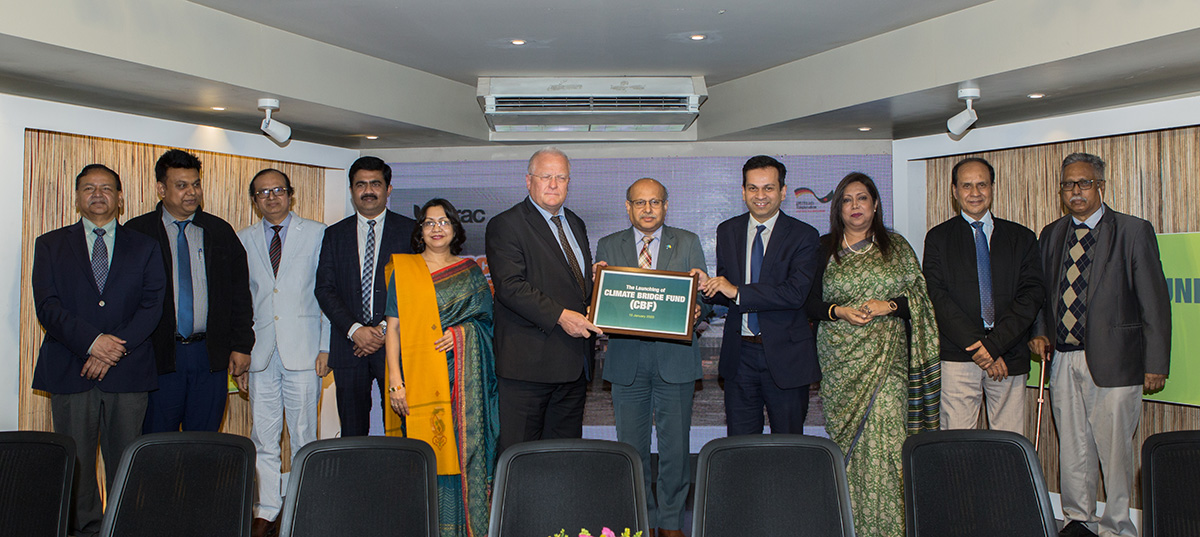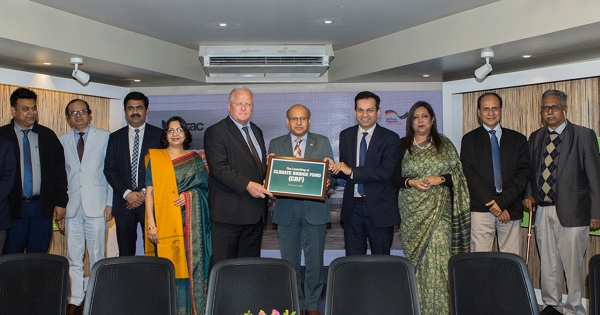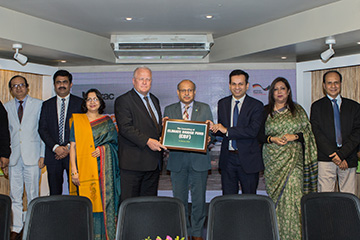
BRAC and the German Development Bank (KfW), on behalf of the German Government have jointly launched a trust fund titled 'Climate Bridge Fund' on 15 January 2020, with an initial amount of 11.735 million Euro.
The 'Climate Bridge Fund' has been developed through a collaboration between the two organisations with the objective of strengthening the resilience of climate vulnerable communities in Bangladesh. The Fund was initiated in November 2019, and is now ready to start its activities.
At the core of the 'Climate Bridge Fund' activities will be vulnerable people in urban areas who are either displaced or at risk of being displaced due to the impacts of climate change. In the beginning, the Climate Bridge Fund will concentrate its support to vulnerable communities in Khulna, Barishal, Rajshahi, Satkhira and Sirajganj.
The individual projects will be undertaken by NGOs with expertise in urban slum areas which can apply for funding at the Climate Bridge Fund. Within a defined budget limit, BRAC will also implement projects with the funding of the Fund.
As the chair of the launching event; Asif Saleh, Executive Director, BRAC, said “Climate change is a critical challenge globally, and this will be the key focus of BRAC for the next five years. This fund is a unique initiative for Bangladesh which will encourage and enable sustainable operations as well as scaling up of traditional development projects into climate change projects”.
The launching event was held at the city's BRAC Centre Inn, where several high government officials, as well as members from different national and International NGOs and donor communities were present.
While addressing the event, Anirban Kundu, Country Director, KfW Development Bank said, 'KfW is proud to establish the Climate Bridge Fund together with BRAC. It is going to provide long term financing gaps in local level adaptations in urban areas'.
According to Comprehensive Disaster Management Programme (CDMP II) 2014, one in every seven people in Bangladesh will be displaced due to climate change by 2050.
Many urban centres across the country will experience the challenges of a growing population due to climate-induced migration. People in rural areas, especially those living in poverty, will experience livelihood crises due to the adverse effects of climate change on natural resources and ecosystems. There is a significant statistical relationship between outmigration of farmers and global temperature, it reads.
The 7th Five Year Plan (7FYP) of the Government of Bangladesh states that the number of urban slums and people living in them will increase due to internal migration. This rapid inflow of migrants into slums will create a pressure of additional demands on basic services - employment opportunities, housing, water supply and sanitation, health, education, drainage and other infrastructure and facilities in all urban centres. These centres include Khulna, Barishal, Rajshahi, Satkhira and Sirajganj.
Regarding reducing the vulnerability of climate-induced displaced communities, H.E. Peter Fahrenholtz, Ambassador, Embassy of the Federal Republic of Germany said, 'Germany is committed to continue financing adaptation in LDCs and Emerging Countries.'
The life and livelihoods of people living in urban slums are becoming even more vulnerable without access to these basic services and exposure to various hazards - floods, waterlogging, heat waves, cold waves, droughts, cyclones and storm surges, salinity intrusion in ground/surface water, drainage congestion, and outbreaks of climate sensitive diseases.





